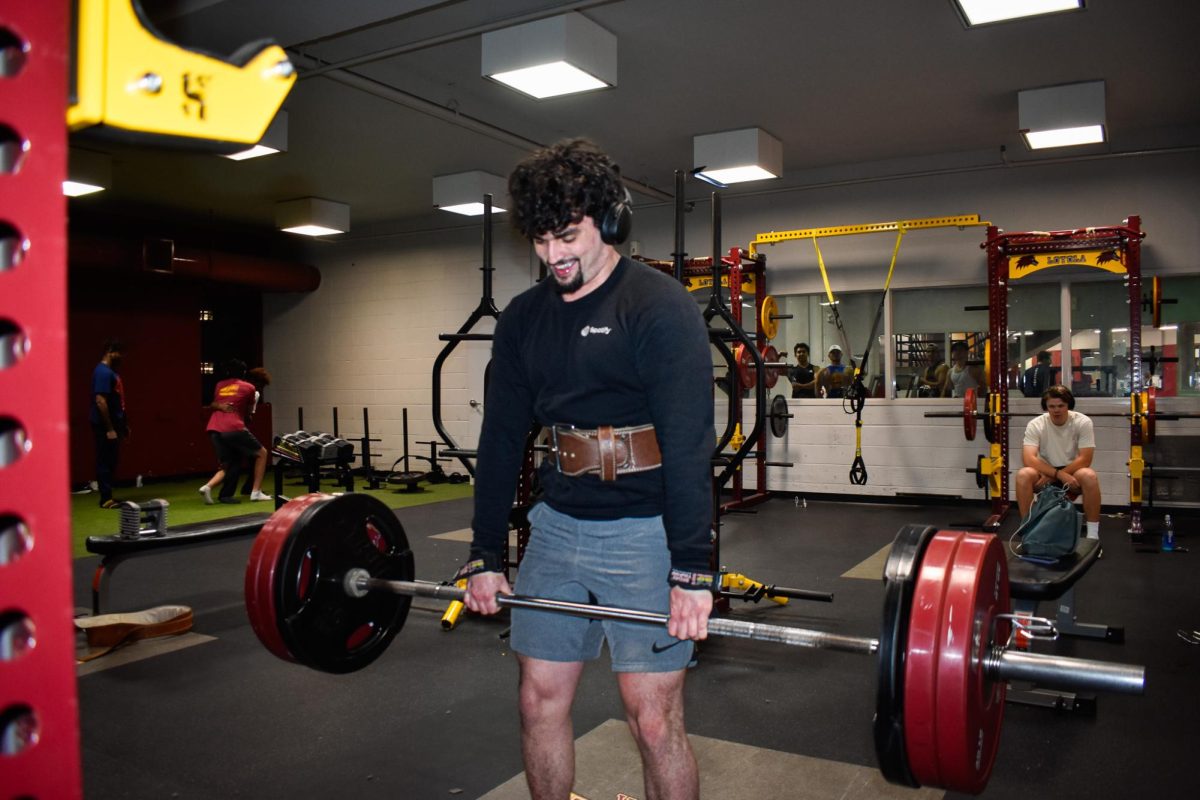Mainstream media continues to focus on the physical and feminine qualities of women politicians, not the platforms and policies they endorse, according to Jennifer Pozner, freelance writer for Ms., Newsday and Chicago Tribune.
Pozner’s Wednesday night lecture, sponsored by the University Programming Board and titled “Condoleezza Rice is a Size Six and Other Important Things I Learned from the News,” focused on how media and entertainment influence the public’s view of women and, more often than not, perpetuate sexist and racist stereotypes. She covered examples of media bias as well as the basic structure of mainstream media in the United States.
“Journalists are obsessed with cutting women politicians down to size,” Pozner said. She cited examples in the news of the reported dress sizes of politicians Hilary Clinton, Janet Reno and Mary Bono.
Other famous women, such as the Dixie Chicks, have been targeted by the media for speaking out on certain issues.
“Radio stations sponsored CD stomping parties,” Pozner said.
Bill O’Reilly, a reporter for Fox News, called Jeanene Garofalo unpatriotic and treasonous, Pozner said. Pozner showed footage of another interview on Fox News, in which Garofalo was talked over and anchors congratulated the interviewer for really giving it to her and making her look silly.
“Is this a locker room or a newsroom?” Pozner asked.
“[It’s] unprofessional journalistic behavior.”
Not just public personas are subject to exploitation in the media, Pozner said. When Dateline NBC covered the mass sexual assaults in New York’s Central Park after a Puerto Rican pride parade, the content implicitly and explicitly blamed women for the attacks, Pozner said.
She showed footage from a Dateline piece that, in between close-up shots of the assaulted women’s bare bodies, interviewed a male observer and woman, who essentially said the women asked for it. In the interview, the man said that the assaulted women kept walking through the crowd of men, who grabbed the women and poured water on them, until the men were unable to control themselves.
“It’s incredibly offensive to men,” Pozner said, referring to the video. “They’re [portrayed as] potential rapists in waiting.”
Pozner explained that female and male sexism in the media effect the public’s ideas of women and their role in society.
“Media stereotypes are taken as truth,” Pozner said.
The goal of media corporations, such as Viacom, Clear Channel, and Fox, is profit, Pozner explained. She also mentioned that none of the above corporations had women on their executive boards, and few newspapers regularly place articles from female reporters on the front page.
According to Pozner, media outlets censor themselves in order to continue generating revenue from advertisers, who often threaten to withdraw ads based on unwanted news content around the ads.
Pozner said that Chairman of Gannett and USA Today told editors to make sure, when placing a picture of a wholesome all-American girl, the best way to improve circulation is to make sure to get her breasts above the fold.
“Corporate media aren’t interested in social change,” Pozner said. “In fact, they fear it.”
Naomi King can be reached at [email protected].













